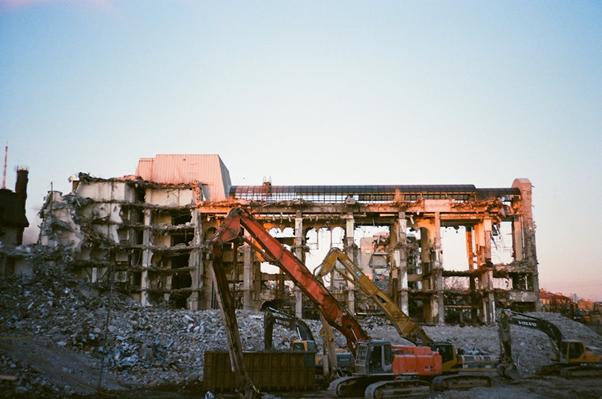At a Glance:
- Ensure strict adherence to local regulations and obtain necessary permits to avoid legal complications in demolition works.
- Conduct thorough environmental assessments, prioritise structural integrity, and implement sustainable demolition practices to mitigate environmental impact and ensure the safety of workers and the surroundings.
- Engage with the community, provide regular updates, and address concerns openly to foster positive relationships and gain support for the demolition project in Victoria and New South Wales.
Commercial demolition is a significant aspect of urban development, particularly in bustling locations like Victoria and New South Wales. Whether to make room for new construction projects or revamp existing structures, deciding to proceed with demolition requires careful consideration. Before initiating any demolition project, evaluating several critical factors is essential to ensure a smooth and successful process.
Regulatory Compliance
Before commencing any demolition work, it is imperative to adhere to regulatory requirements set forth by Victoria and New South Wales authorities. Each state has regulations governing demolition activities to ensure safety, environmental protection, and public welfare.
These regulations may include obtaining permits, adhering to zoning laws, and compliance with environmental standards. Engaging with experienced commercial demolition services well-versed in local regulations can streamline the process and mitigate potential legal complications.
Environmental Impact Assessment
Demolition activities can have significant environmental implications if not managed properly. Assessing the ecological impact of the demolition project is crucial to minimise adverse effects on air and water quality, soil contamination, and wildlife habitats.
In Victoria and New South Wales, where environmental conservation is a priority, conducting thorough environmental assessments and implementing sustainable demolition practices are paramount. Employing techniques such as recycling, salvaging materials, and proper waste disposal can mitigate environmental harm and contribute to sustainability goals.
Structural Integrity and Safety
The safety of workers, adjacent properties, and the surrounding community is of utmost importance during demolition projects. Conducting comprehensive structural assessments of the building to be demolished is essential to identify potential hazards, such as unstable structures, hazardous materials, or compromised foundations.
Utilising the expertise of structural engineers and certified demolition contractors ensures that proper safety measures are implemented throughout the demolition process. Developing a detailed demolition plan outlining safety protocols, emergency procedures, and site-specific risk assessments is critical to mitigating accidents and ensuring regulatory compliance.
Project Timeline and Budget
Efficient project management is essential to the success of any demolition endeavour. Before initiating the project, it’s crucial to establish a realistic timeline and budget that accounts for all aspects of the demolition process, including site preparation, equipment rental, labour costs, and waste disposal expenses. Delays or budget overruns can significantly impact the project’s success and financial viability.
Engaging with experienced commercial demolition services that offer transparent pricing, detailed cost estimates, and efficient project scheduling can help mitigate risks and ensure the project’s timely completion within budgetary constraints.
Community Engagement and Stakeholder Communication
Demolition projects can often evoke concerns among residents, businesses, and community stakeholders regarding noise, dust, and disruption to daily activities. Proactively engaging with the community and fostering open communication channels can help address concerns, build trust, and mitigate potential conflicts.
Providing regular updates, hosting community meetings, and implementing mitigation measures such as dust control and noise reduction strategies demonstrate a commitment to minimising the impact of the demolition on the surrounding community. By fostering positive stakeholder relationships, project proponents can enhance community acceptance and support for the demolition project.
Commercial demolition projects in Victoria and New South Wales require careful consideration of various factors to ensure successful outcomes. By prioritising regulatory compliance, environmental sustainability, safety, efficient project management, and community engagement, project proponents can navigate the complexities of demolition projects effectively.
Engage with experienced commercial demolition services near you that understand the unique challenges and requirements of the local market. Local knowledge of demolition services is essential for achieving project objectives while upholding the highest safety, quality, and environmental stewardship standards.

